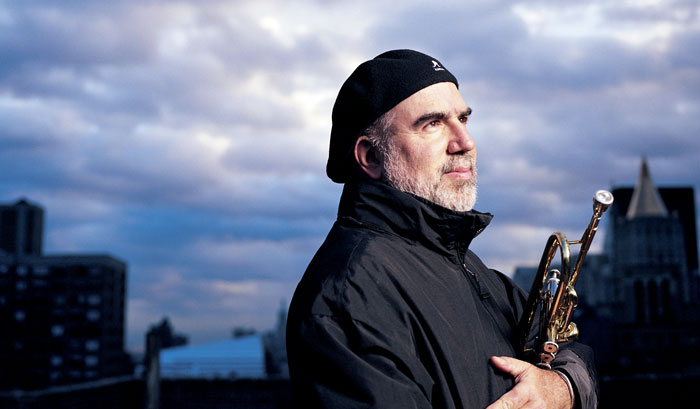


In today's sample-anything era, it's easy to forget just how bold a move it was when a handful of young musicians first melded rock and jazz back in the late '60s.
Trumpeter Randy Brecker was one of those genre-jumping revolutionaries. As a founding member of Blood, Sweat & Tears, he appeared on The Child Is Father to the Man, a record whose bold jazz/rock/R&B hybrids set the musical community on its ear in 1968. Since then he's played on countless sessions, many of which were hits. He's collaborated with everyone from Aerosmith to Zappa, including James Brown, Eric Clapton, and Frank Sinatra. He's also released many memorable albums as a solo artist, with his brother, tenor saxophonist Michael Brecker, and with his wife, vocalist/pianist Eliane Elias.
A lot of rock and roll listeners didn't know the difference between a trumpet and a trombone... using jazz musicians was really revolutionary.
Did Brecker realize he was making musical history back at the dawn of jazz-rock fusion? "Actually, it was kind of mindboggling at the time," he recalls. "It was an exciting era that hasn't quite been duplicated since, a natural convergence of lifestyle and music. A lot of rock-and-roll listeners didn't know the difference between a trumpet and a trombone, so it opened up a lot of ears. The fact that they were using jazz musicians was really revolutionary."
Randy began absorbing his many musical influences at an early age. "There's a great jazz tradition in Philadelphia, where I grew up," he notes. "We had all the great organ groups. We had good R&B bands. And of course there was the show American bandstand, which drew upon the talents of many South Philly musicians. Some of the pop singers were closet jazz musicians, and I'd play with them on the weekends. For example, Frankie Avalon also played jazz trumpet, and Bobby Rydell was a jazz drummer. There was a good jazz radio station and a good R&B radio station right next to each other, and I'd toggle back and forth between the two. So by the time I got to New York, I kind of had a foot in both worlds."
After the First Blood, Sweat & Tears release, Brecker departed to play with influential bebop pianist Horace Silver. "I just really wanted to play," he explains. "In BS&T I was mostly reading charts-I didn't really get much of a chance to solo. Playing with Horace was an amazing learning experience. That band featured young Billy Cobham on drums, with Bennie Maupin on tenor saxophone and John Williams on bass. Horace was still into a pretty heavy bebop mode at the time, but over the two or three years I was with him, he started to absorb some new influences. He switched from using upright bass to electric, and his writing became more R&B- and jazz-rock influenced. I really got to see the influence the times had on him."
For Brecker, Yamaha trumpets are an obvious choice. "I play a Yamaha b-flat 8335 Xeno model that I'm very happy with," he says. "I've played it for two years now-prior to that I had a 6335. Yamaha trumpets are all amazingly consistent, technologically speaking. But this particular model seems to suit me best. It's got a very round, full, pretty trumpet sound, with the right response for me. I can get all over the horn-it's just easy to play, and it feels good. I get a lot of great comments about it all the time." Randy also plays a Yamaha 631 flugelhorn.
Of Brecker's countless sessions, which were the most memorable? "Well," he replies, "those would be the ones where the musicians were personally involved with the arrangements. That was the case with James Taylor, some of the Paul Simon records, and the Steely Dan records. I got to do my own charts for Diana Ross, Chaka Khan, and George Benson. I got to really play a little on Bruce Springsteen's 'Meeting Across the river,' on Born to Run. And one that definitely sticks in my mind was going on the road with Stevie Wonder during his "Superstition" days." Brecker feels that the fusion spirit survives, even if it's not exactly welcomed by the mainstream music industry. "It's difficult to get that kind of thing recorded these days," he laments. "It's really hard to find a record company that lets you do what you want, and that does more than cater to radio formats. Even so, there are a lot of really progressive bands out there doing things that are original and current."
























